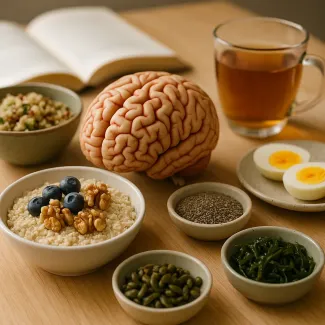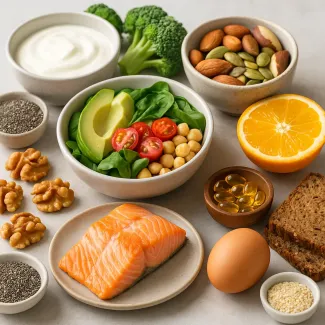
Subtle shifts in connective tissue as the years progress
How collagen relates to everyday sensations in skin and joints after 30
In your 20s, skin often feels resilient even after poor sleep, and joints tend to recover quickly from long walks or workouts. After 30, many people notice something quieter: skin that feels a bit less springy in the morning, or joints that need more time to “warm up,” even when nothing is technically wrong. It’s easy to assume this is just how aging works, but the reality is more nuanced and closely tied to how connective tissue responds to time, stress, and internal balance.
What changes in the body with age
Collagen turnover slows down gradually
Collagen is a structural protein present in skin, tendons, ligaments, cartilage, and fascia. In early adulthood, the body replaces collagen efficiently. From the mid-30s onward, collagen synthesis slows, while breakdown continues at a steady pace. This shift doesn’t cause sudden problems, but it can subtly affect how tissues feel and respond.
Skin may lose some of its immediate rebound after pressure, while joints may feel less fluid after sitting still. These changes are functional, not pathological, and they often fluctuate depending on lifestyle, stress, and recovery.
Low-grade inflammation as a background factor
Why joints and skin can feel “different” without pain
Another quiet contributor is low-intensity inflammation, which tends to increase with age due to cumulative stress, diet, sleep disruption, and hormonal shifts. This kind of inflammation is not obvious or painful, but it can influence how connective tissue holds water and how smoothly joints move.
Collagen-rich tissues are particularly sensitive to this environment. When recovery is slower, sensations like stiffness or dryness are often more noticeable, especially in the morning or after inactivity.
Hormones and connective tissue sensitivity
A changing internal signal system
Hormones such as estrogen, testosterone, and cortisol play a role in tissue repair and hydration. As their patterns change with age, collagen structures may respond differently. This helps explain why skin elasticity and joint comfort can vary across life stages, stress levels, or even seasons.
These shifts are common across adults after 30 and are part of broader body adaptations rather than isolated issues. For a wider perspective on these patterns, see
Life after 30: common body changes people start to notice.
How this shows up in daily life
Small signals, not dramatic symptoms
Most people don’t experience sharp pain or visible changes. Instead, they notice subtle signals:
- skin that feels less plump without consistent hydration,
- joints that prefer gentle movement before full activity,
- a general sense that recovery takes more intention than before.
These are often situational and reversible with supportive habits rather than something that requires fixing.
Where collagen supplements fit into the picture
Context rather than solutions
Collagen supplements are commonly discussed as part of a supportive routine, not as a corrective measure. They are typically used alongside adequate protein intake, balanced nutrition, and daily movement. Their role is best understood as contextual support for connective tissue, especially during periods of higher physical demand or stress.
It’s also worth noting that skin appearance is influenced by external care as much as internal factors. Many people combine internal routines with approaches described in
Natural Skin Care with Oils & Masks: Radiant Glow Without Chemicals.
What can realistically help over time
Gentle, consistent choices
Rather than focusing on single interventions, adults tend to benefit most from steady habits:
- regular low-impact movement to encourage joint circulation,
- sufficient sleep to support tissue repair,
- balanced meals that provide amino acids and micronutrients,
- stress management to limit inflammatory load.
These choices influence how collagen-rich tissues feel day to day, even if they don’t change aging itself.
Understanding the bigger pattern
Aging as adaptation, not decline
Changes in skin elasticity and joint comfort are part of a broader pattern of adaptation after 30. Seeing them in context often reduces unnecessary concern and helps people respond with proportionate, sustainable habits. A structured overview of these shifts is explored in
10 Key Body Changes After 30 and How to Manage Them for Better Health.
Taken together, collagen, hormones, inflammation, and lifestyle form an interconnected system. Understanding that system allows adults to interpret bodily signals calmly and respond in ways that support long-term comfort and function, without pressure to reverse time or chase extremes.





